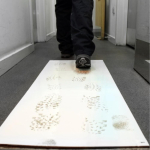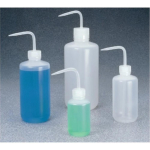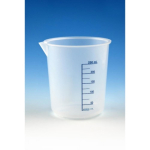Application
The typical use for this product is in removing adherent cells from a culture surface. The concentration of trypsin necessary to dislodge cells from their substrate is dependent primarily on the cell type and the age of the culture.
Biochem/physiol Actions
Trypsin cleaves peptides on the C-terminal side of lysine and arginine residues. The rate of hydrolysis of this reaction is slowed if an acidic residue is on either side of the cleavage site and hydrolysis is stopped if a proline residue is on the carboxyl side of the cleavage site. The optimal pH for trypsin activity is 7-9. Trypsin can also act to cleave ester and amide linkages of synthetic derivatives of amino acids. EDTA is added to trypsin solutions as a chelating agent that neutralizes calcium and magnesium ions that obscure the peptide bonds on which trypsin acts. Removing these ions increases the enzymatic activity. Serine protease inhibitors, including DFP, TLCK, APMSF, AEBSEF, and aprotinin, amongst others, will inhibit Trypsin.
Caution
This product is stored frozen between -10 and -40°C. Repeated cycles of freezing and thawing should be avoided.
Components
Trypsin consists of a single chain polypeptide of 223 amino acid residues, produced by the removal of the N-terminal hexapeptide from trypsinogen which is cleaved at the Lys - lle peptide bond. The sequence of amino acids is cross-linked by 6 disulfide bridges. This is the native form of trypsin, beta-trypsin. BETA-trypsin can be autolyzed, cleaving at the Lys - Ser residue, to produce alpha-trypsin. Trypsin is a member of the serine protease family.
Preparation Note
This product does contain phenol red. Due to shipment on dry ice, there could be significant carbon dioxide buildup in the package. This CO2 may enter the solution and lower the pH slightly, giving an orange rather than pinkish color. The orange solution will still be suitable for use, or the pH can be adjusted with sodium hydroxide. Incubating cells with too high a trypsin concentration for a long period can damage cell membranes and kill the cells. Solubilizing trypsin or diluting it from a concentrated solution should be done with a buffered salt solution containing no Ca2+ or Mg2+.







